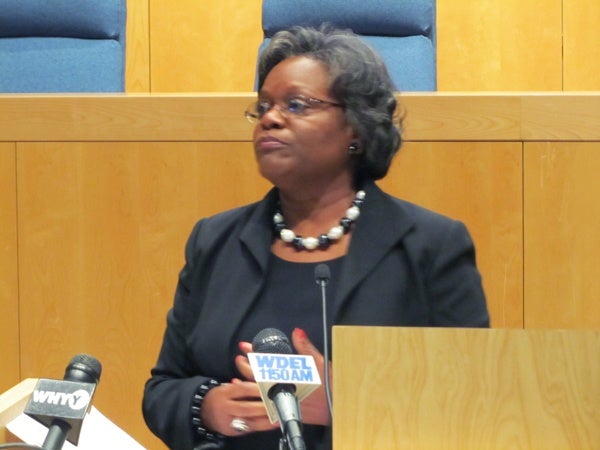Pediatrician sex abuse case provides legal, regulatory lessons in Delaware
Lessons are still being learned from the case of Earl Bradley, the former southern Delaware pediatrician arrested nearly two years ago for sexually dozens of children.
Earl Bradley has been sentenced to life in prison, and the Lewes office complex where the former pediatrician carried out sex crimes against dozens of his young patients has been torn down.
However, the legal and regulatory questions raised by the case are still providing a learning opportunity.
“Today is a story of heartbreak, and of hope,” Governor Jack Markell said at the opening Friday of a Widener University School of Law symposium focusing on legal and ethical issues raised by the Bradley Case.
Markell appointed Widener Law Dean Linda Ammons in early 2010 to conduct an independent review into how Bradley was able to abuse children despite complaints and concerns raised by parents and fellow doctors. In discussing her findings, Ammons said there were about six occasions where appropriate intervention and action might have prevented future abuse.
Why didn’t more colleagues report their concerns, or take them further?
“Doctors felt nothing would be done,” Ammons said.
Ammons’ review formed the basis for a legislative effort to address shortcomings in how complaints of unprofessional, unethical or abusive behavior against a doctor are addressed. Markell cited a recent report from the Division of Professional Regulation which indicated that the number of disciplinary actions taken by the Board of Medical Licensure and Discipline nearly quadrupled from 2009 to 2010. The Governor said that was an indication that more professionals recognize their duty to follow through on their concerns, and the public has become better informed about how to make a complaint.
Delaware Public Health Director Dr. Karyl Rattay also outlined some of the public health concerns raised by the Bradley case, including allegations that Bradley diluted some of the vaccines he gave to children to save his own costs. Since the results of that investigation were inconclusive, Rattay said it was recommended to many of the parents that they have their children re-immunized.
Bradley waived his right to a jury trial, and was convicted over the summer after a one-day trial heard by a superior court judge. The defense put up no evidence, proceeding immediately to its appeal. Bradley’s lawyers contend that some of the video evidence seized from his office complex – videos of sex crimes recorded by Bradley himself – were taken without the proper warrants.
Gina Maisto Smith, a Philadelphia attorney serving as a panelist at the Widener conference, said most child sexual abuse cases do not involve such convincing evidence.
“These cases are hard. They are word against word,” Smith said.
WHYY is your source for fact-based, in-depth journalism and information. As a nonprofit organization, we rely on financial support from readers like you. Please give today.









